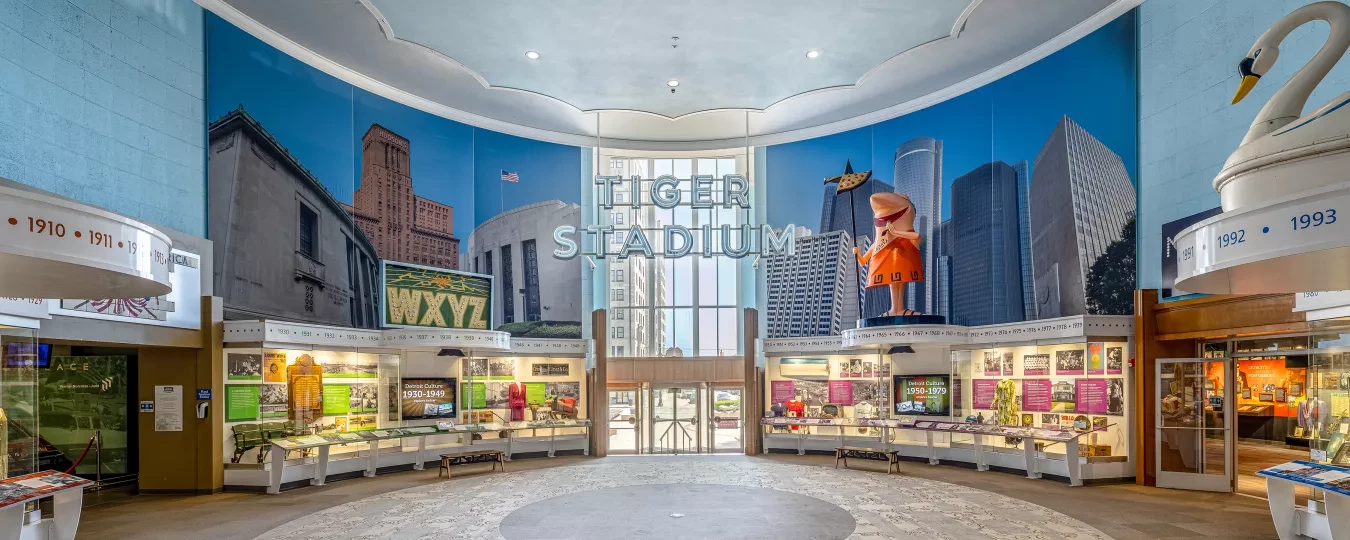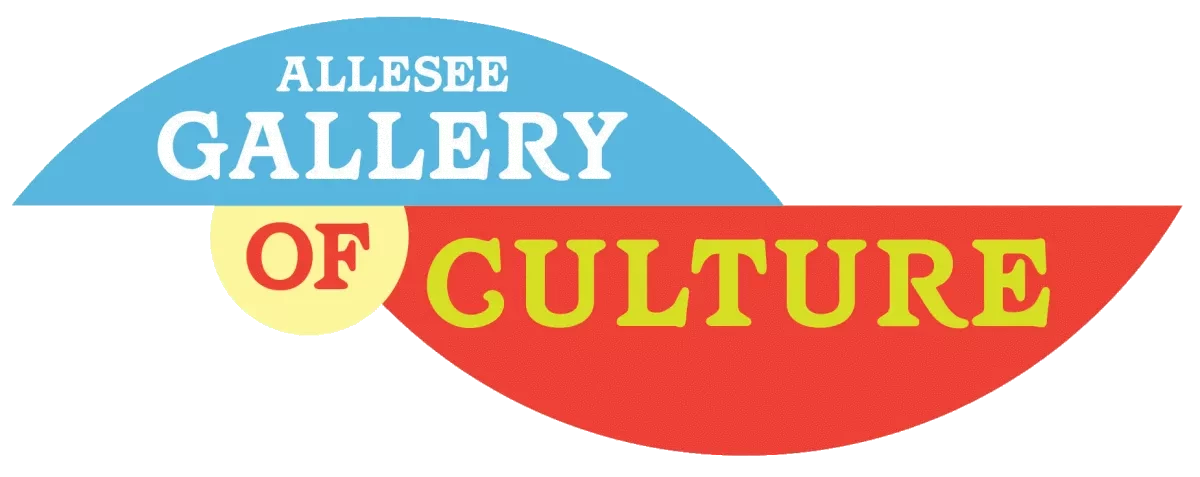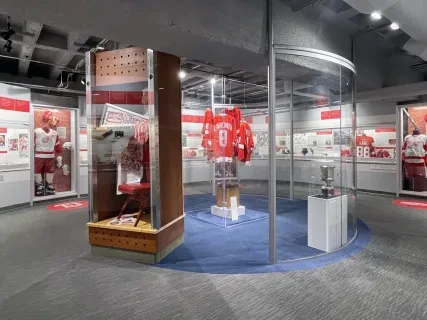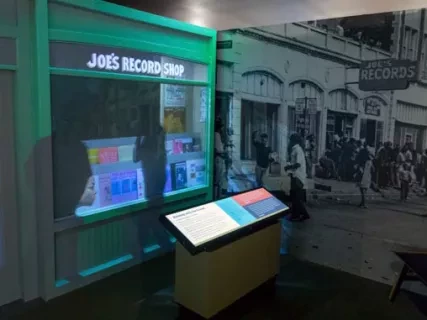Imagine hearing the unmistakable sound of a baseball meeting the full force of Hall of Famer Al Kaline’s bat at Tiger Stadium. Imagine feeling the thrill as the solid, brass-colored elevator doors slowly opening onto the 12th floor of downtown Hudson’s, revealing aisle upon aisle of your favorite toys. Imagine working on the assembly line at Ford Motor Company when the first Model T rolled off it and, shortly thereafter, drove onto Woodward.
You might experience feelings — or memories — like these again at the Allesee Gallery of Culture.
This exhibition highlights the culture that all Detroiters recognize as our own — a distinct blend of influences, inspired by creativity and fueled by a passionate work ethic. In the 20th century, Detroit put the world on wheels, armed the world against tyranny in World War II and provided the soundtrack for a generation that came of age in the 1960s. Understanding the community that achieved these things requires an immersion into the culture that surrounded them.
Using the 20th century as a base, visitors learn about Detroit culture through time and share common experiences that define Detroit. Divided into four sections, the exhibition addresses key themes for each decade using objects, images and video.



